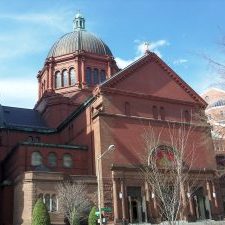When Must a Catholic Judge Recuse from Cases Involving His Diocese?
 [The following is a guest post from Daniel Suhr ’08, a prior guest alumni contributor to the Blog.]
[The following is a guest post from Daniel Suhr ’08, a prior guest alumni contributor to the Blog.]
Yesterday the U.S. Supreme Court denied certiorari in Archdiocese of Washington v. Washington Metropolitan Transit Authority. According to the order in the case, Justice Kavanaugh took no part. In his statement respecting the denial of certiorari, Justice Gorsuch wrote, “Because the full Court is unable to hear this case, it makes a poor candidate for our review. But for that complication, however, our intervention and a reversal would be warranted….” Justice Kavanaugh was a member of the D.C. Circuit panel that first heard oral argument in the case when he was Judge Kavanaugh, and thus could not hear the case again on appeal. See 28 U.S. Code § 47 (he subsequently withdrew from the panel).
Some have suggested that Kavanaugh was recused (either at the DC Circuit or SCOTUS) because he was an active member of a parish in the Archdiocese of Washington. This is not the standard for recusal for any judge on cases involving institutions of his or her faith.
Courts consistently hold that judges do not have to recuse when their denomination has taken a public stand on an issue before the judge.

